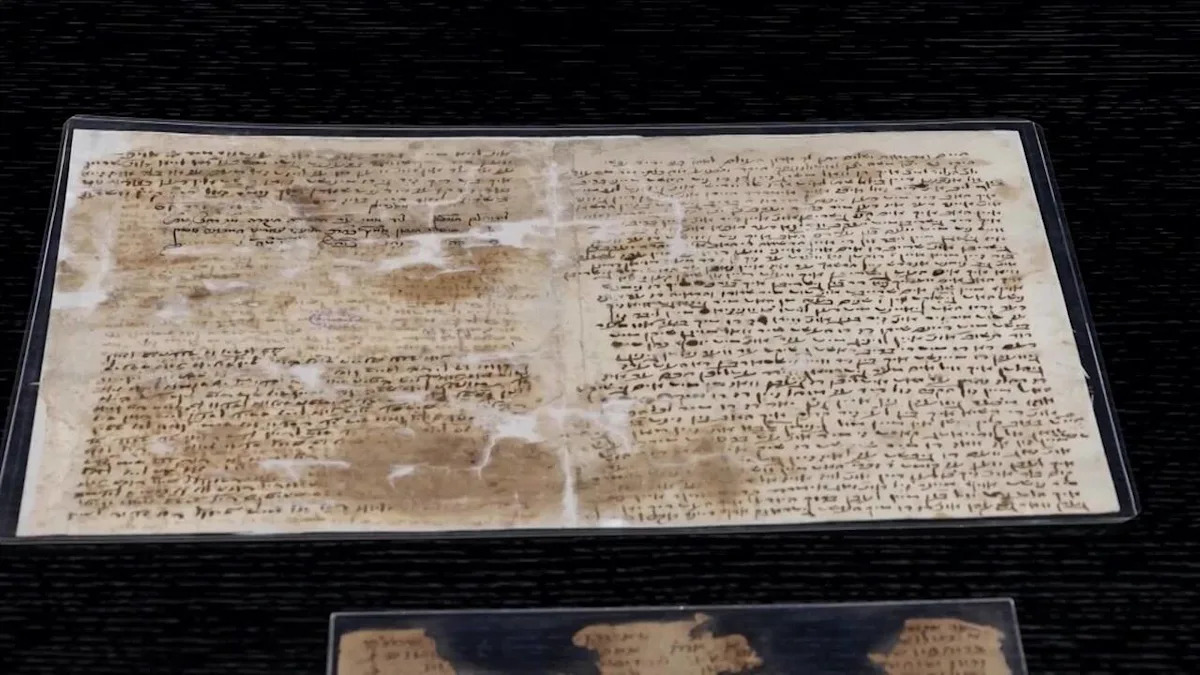Science
Researchers Unlock Secrets of Medieval Jewish History with AI

Researchers at Oxford University are employing artificial intelligence to explore the world’s largest collection of medieval Jewish documents, a treasure trove that spans centuries of history. This initiative aims to unearth insights from over 500,000 documents housed primarily in Israel, enhancing our understanding of Jewish life during the medieval period.
The archive, known as the Cairo Geniza, contains a vast array of writings, including religious texts, legal documents, and personal letters. These artifacts, dating from the 9th to the 19th centuries, offer a unique glimpse into the daily lives and cultural practices of Jewish communities across the Mediterranean region.
AI Technology Enhances Research Capabilities
The innovative application of AI technology is revolutionizing the way researchers analyze these ancient texts. Traditionally, scholars have had to sift through the documents manually, a process that is both time-consuming and labor-intensive. By utilizing machine learning algorithms, researchers can now process and catalog this extensive collection more efficiently.
Dr. Jessica Cohen, a leading researcher in the project, stated, “AI allows us to identify patterns and connections that would take years for human researchers to uncover. It’s like having a digital assistant that never tires.” This technology not only accelerates the research process but also opens up new avenues for discovery that may have previously gone unnoticed.
The project has garnered significant attention from both academic circles and technology enthusiasts, highlighting the intersection of history and modern science. As AI continues to evolve, its potential applications in the humanities are becoming increasingly apparent.
Potential Impacts on Jewish Studies and Beyond
The implications of this research extend beyond just Jewish history. The methodologies developed through this project are likely to be applicable to other historical archives, providing a framework for the analysis of ancient texts across various cultures. As AI technology advances, scholars anticipate that it will play a critical role in preserving and interpreting historical documents worldwide.
This collaborative effort has also sparked interest in interdisciplinary studies, bringing together historians, linguists, and computer scientists. By fostering collaboration among diverse fields, the project aims to create a holistic approach to understanding the past.
As the researchers continue to delve into the Cairo Geniza, the findings promise to reshape narratives surrounding medieval Jewish life and culture. With each document analyzed, the project not only preserves history but also enriches our collective understanding of human experience.
In summary, the integration of artificial intelligence into the study of medieval Jewish documents stands to make a profound impact on both historical research and the broader academic community. As the project progresses, scholars and enthusiasts alike eagerly await the insights that will emerge from this groundbreaking work.
-

 Lifestyle4 months ago
Lifestyle4 months agoLibraries Challenge Rising E-Book Costs Amid Growing Demand
-

 Sports4 months ago
Sports4 months agoTyreek Hill Responds to Tua Tagovailoa’s Comments on Team Dynamics
-

 Sports4 months ago
Sports4 months agoLiverpool Secures Agreement to Sign Young Striker Will Wright
-

 Lifestyle4 months ago
Lifestyle4 months agoSave Your Split Tomatoes: Expert Tips for Gardeners
-

 Lifestyle4 months ago
Lifestyle4 months agoPrincess Beatrice’s Daughter Athena Joins Siblings at London Parade
-

 World4 months ago
World4 months agoWinter Storms Lash New South Wales with Snow, Flood Risks
-

 Science3 months ago
Science3 months agoSan Francisco Hosts Unique Contest to Identify “Performative Males”
-

 Science4 months ago
Science4 months agoTrump Administration Moves to Repeal Key Climate Regulation
-

 Business4 months ago
Business4 months agoSoFi Technologies Shares Slip 2% Following Insider Stock Sale
-

 Science4 months ago
Science4 months agoNew Tool Reveals Link Between Horse Coat Condition and Parasites
-

 Sports4 months ago
Sports4 months agoElon Musk Sculpture Travels From Utah to Yosemite National Park
-

 Science4 months ago
Science4 months agoNew Study Confirms Humans Transported Stonehenge Bluestones









